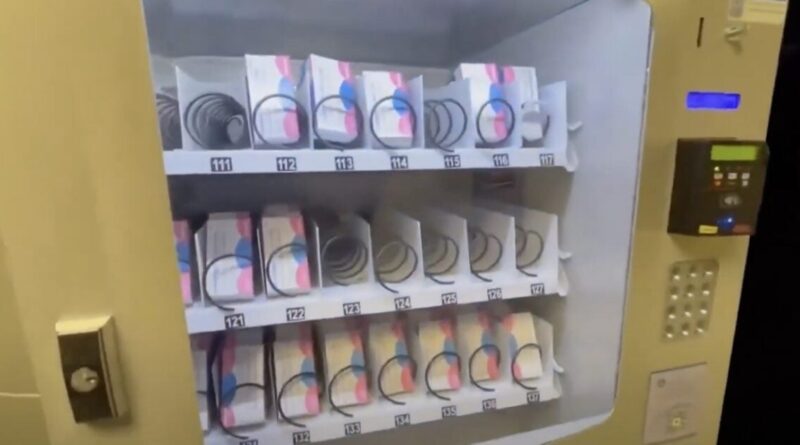Washington State to Use Taxpayer Dollars to Fund Free Abortion Pill Vending Machines on College Campuses | The Gateway Pundit | by Margaret Flavin | 168
Beginning in 2024, colleges and universities in Washington State can apply for funding to place free emergency contraceptive vending machines on state campuses on the taxpayer’s dime.
The vending machines will include the Plan B abortion pill. Funding for the program comes from $200,000 reserved by the state from taxpayers.
Washington recently became the first state to pledge public funding for vending machines that carry emergency contraception — including Plan B, which prevents pregnancy within 72 hours after unprotected sex — at its public universities, technical and community colleges, hoping to address the growing need for reproductive health care on college campuses.
Beginning in 2024, public colleges will be able to apply for a $10,000 grant that would support installation and upkeep of a vending machine, which generally carries Plan B, pregnancy tests, Tylenol and ibuprofen. The state has set aside about $200,000 total for schools to establish additional vending machines.
According to the Seattle Times, a pilot program at The University of Washington saw extensive use, “Within the first three months of the vending machine’s arrival, it went through more than 600 boxes of emergency contraception, Riley said.”
According to American Society for Emergency Contraception (ASEC), which advocates for placing machines on campuses across the country, more than three dozen college campuses in 17 states have established similar vending machines.
ASEC also provides ways to circumvent rules on religiously-affiliated or generally more conservative campuses by creating a “peer-to-peer” distribution system of emergency contraception share in their website, “Students can help meet this need by confidentially providing free (or low-cost) EC to other students, communicating through hotlines and online forms. EC4EC has several students working on these programs across the country and they would love to share their insights with new campus groups.”




